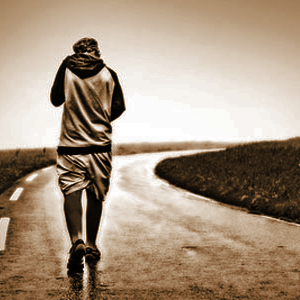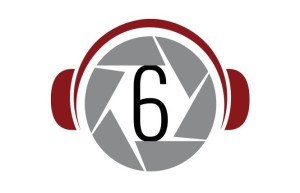World Cup 2010 – Groups Overview: Part Four
14 min read There are 8 different groups (group A – group H) parsed out to 4 teams from all different countries that qualified and they are drawn at random. In the next few months, I will analyze each of the groups with a quick synopsis of the teams and the common thought of who would move on and who would be packing for home in the first round of the tournament.
There are 8 different groups (group A – group H) parsed out to 4 teams from all different countries that qualified and they are drawn at random. In the next few months, I will analyze each of the groups with a quick synopsis of the teams and the common thought of who would move on and who would be packing for home in the first round of the tournament.
Group G
Brazil (BRA)
Nickname: Selecao (The Selection)
There is controversy on the truth of Brazil’s first international game, played in 1914 against the English club team, Exeter City. Some say the game ended with a Brazilian victory of 2-0 while others claim it was a 3-3 draw. Regardless of the outcome, there was strife, in the early days of Brazilian soccer. Disputes within the Brazilian Soccer Federation regarding professionalism caused the Federation to be unable to field a full strength team. Local federations within San Paulo and Rio de Janeiro declared that no players within either federation would be on the National team. With these limitations, the first two World Cups were not successful for Brazil, being knocked out in the first round, both times. However, in the 1938 World Cup, Brazil saw their way to finishing third in the tournament. Hosting the World Cup, in 1950, Brazil lost to Uruguay in the final match that is known as Final Fatidica (Fatal Final), where Uruguay needed a win, Brazil just a tie. In the 1954 World Cup, a whole new team arrived, to forget the last World Cup’s tough loss, only saw Brazil exit the tournament with a loss to Hungary, in the quarterfinals.
In the 1958 World Cup, the coach, Vicente Feola, had strict rules for the team to follow. A list of forty things that the players were not allowed to do, were given to the players. As well, they were the only team to bring along a psychologist (the 1950’s loss still effected some of the players) as well as a dentist. Many players had dental problems which caused infections, leading to poor performances. Selected into the toughest group, Brazil had to get through Austria, England and USSR to move on. After beating Austria, tying England, Brazil faced an uphill battle playing against favored USSR. With strict planning, Brazil beat USSR 2-0 and then moved on to beat host country, Sweden to win their first World Cup. The following World Cup, in 1962, Brazil won its second World Cup. However, in the 1966 World Cup, Brazil had their worst performance, even having the great Pele, who was seemingly fouled constantly. With, arguably, the greatest team of all times, Brazil won the Cup a third time, in the 1970’s World Cup. After Pele retired, Brazil was unable to crack Holland’s total football scheme and Brazil finished in fourth in the 1974 World Cup, while controversy mired the Brazilians in the 1978 World Cup. Although, finished at the top of their group with a +5 goal differential, hosts, Argentina was second with a +2 goal differential. In the last game, Argentina defeated Peru, 6-0, causing Brazil to finish third. Brazil had won the World Cup two more times, in 1994 and in 2002 to currently hold the record of hoisting the Cup 5 times. As well, Brazil has qualified for the World Cup every time, since the start in 1930.
During the play coming up to the World Cup, there were some questions about current coach, Dunga, philosophy, whether or not it was the Brazilian style, especially during the 2009 Confederations Cup, when the Americans were up 2-0 at half time. However, a team that has superstars written all over it, they were able to come out on top, winning their third Confederations Cup, beating the US 3-2. Although Brazil is grouped in what many consider to be the Group of Death, Brazil is still expected to come out on top. With superstar goalkeeper, Julio Ceasar manning the goal, veteran defenders, like Dani Alvez, Maicon and Juan, It is almost inevitable that Brazil moves on to hoist the Cup a sixth time. This Brazilian team is like a “Who’s Who” for soccer fans, and that does not even including former Player of the Year, Ronaldinho, who has been on the outs with coach Dunga. During this time, Brazil has relied on veteran Kaka, one of the world’s best midfielder along with speedy Robinho up front, putting the ball in the back of the net. Even with Ronaldinho’s resurgence at his club, Inter Milan, Dunga chose to leave Ronaldinho off the team.
Portugal (PT)
Nickname: Seleccao das Quines (Team of Five Shields)
In 1914 the Portuguese formed the football Federation under the name of Uniao Portuguesa de Futebol, but in 1924, changed the name to the Portuguese Football Federation. It was formed to create national tournaments in order to promote a national Portuguese team to play against other teams from around the globe. However, due to World War I, this dream was not recognized until 1921, when Portugal played its first international game against Spain, which ended in defeat. In 1928, Portugal was invited to participate in the 1928 Summer Olympic Football Tournament, which was considered the greatest soccer tournament in the world, at the time. In the first game they were facing Chili and fell behind 2-0, before finishing the game with a win 4-2. This proved to be Portugal’s first win away from home. After beating Yugoslavia 2-1 they moved on to the quarterfinals to face Egypt, where they lost 2-1.
Portugal was not invited to the 1930’s World Cup and failed to qualify for the 1938 World Cup. Portugal would not get another chance to qualify until 1950, due to World War II, hence limiting Portugal’s international play. When the tournament resumed, Portugal, again, failed to qualify. It was not until the 1966 World Cup when Portugal finally qualified. The Portuguese fortunes seemed to be positive as they finished the first round with three wins, with a notable win over Brazil, 3-1, and moved on to the knock out rounds. Portugal would meet England in the semi-finals, where they would lose 2-1. Portugal would finish in 3rd place. After this, Portugal would fail to qualify again, until 1986 where they were knocked out in the first round. Portugal would fail to qualify from 1990 on through the 1998 World Cup, though in a qualifier against Germany, Rui Costa was given a controversial Red Card for “taking too long to walk off the field” after being substituted out, a man down Portugal was unable to stop Germany from scoring, knocking Portugal out. This was the darkest time for Portugal, leading many to accuse FIFA of favoring Germany.
Although Portugal is a team with numerous talented players, it seems as if a dark cloud hovers over this team, as they barely managed to qualify for World Cup 2010, just beating out Sweden by one point. Portugal has a few Brazilian born players on his team, like defender Pepe, midfielder Deco and forward Liedson that proves to be an interesting combination. Still, with veterans like defenders Richardo Carvalho and Paulo Ferreira, Tiago and Maniche in midfield and the superstar, number 9, Christian Ronaldo teamed with Simao and Louis Boa Morte, the talent is there and should be enough to move on to the knock out rounds. However, history has proven that no matter the talent on the team, a dark cloud has followed Portugal all these years, will this year be the year they are able to break through? Ivory Coast hopes this is not the year.
Côte d’Ivoire-Ivory Coast (CIV)
Nickname: Les Elephants
The Ivory Coast soccer federation is a relatively young federation, forming in 1960 and playing in their first international match where they won, 3-2 over Dahomey, played in Madagascar. The first taste of a major tournament was in 1965 where they first played in the African Cup of Nations. First playing Congo which they won 3-0 and then lost to Ghana 4-1, in the end Ivory Coast ended up in third place. Duplicating this feat three years later Les Elephants took third place in the 1968 African Cup of Nations, where Ivory Coast beat hosts Ethiopia 1-0 to take third.
Their biggest claim to fame is from 1992, where they won the African Cup. Though, this victory was not an easy one. After finishing at the top of their qualifying group, scoring ten more goals than they had let in, Ivory Coast began to struggle in scoring goals. Their first opponent in the knockout round was Zambia, which they won 1-0. Their next opponent was African powerhouse Cameroon, where the game ended in a 0-0 tie. The game had to be decided on penalty kicks, which Ivory Coast won 3- 1. In the finals, Ivory Coast faced Ghana again. After the full game, the score was still tied 0-0 and the game had to be decided, again, with penalty kicks, in which Ivory Coast squeaked out a victory winning the shoot out 11-10. Next tournament, they finished in third, again.
The Elephants will be relying heavily on their biggest star player, forward Didier Drogba. Didier is currently Ivory Coast’s current record holder in goals scored with 43. However, veteran EPL defenders Emmanuel Eboue and Kolo Toure will be key for the defense while Didier Zokora, Yaya Toure and Abdul Kader Keita will be relied heavily on in the midfield. Teamed up front with Drogba should be Salomon Kalou and Aruna Dindane. With solid teams like Brazil and Portugal in front of them, the likelihood of them moving on to the knock out rounds is slim.
Korea DPR (PRK)
Nickname: N/A
October 7th, 1956 in Bejin China, saw the first international game played by the North Koreans. That is the date that also saw China lose 1 – 0. However, soccer in the country was not something they put their focus on. In 1964, North Korea qualified for the Olympic, however when they arrived, they withdrew from the competition, due to disqualification of several North Korean contestants.
Korea DPR’s biggest success came in the form of the 1966 World Cup upset of Italy, enabling them to move on to the quarterfinals, being the first Asian team to do so. There, they faced Portugal where they went up 3-0 in the first half, only to lose 5-3. In the 1970’s qualifying, the North Korean’s chose to with draw as they refused to play Israel, as Israel was a new team qualifying in the Asiatic region. In 1974, North Korea failed to qualify for the World Cup and yet again, due to their reluctance to play Israel, they withdrew from the World Cup qualifying, so they wouldn’t have to play against Israel. North Korea continued to show its disinterest with the sport of soccer by not entering to play for the World Cup from 1998 on through to 2002. When they decided to try again, in 2006, they failed.
However, North Korea has qualified and is determined to prove the world of their superiority. By the simple fact that they qualified, should be excitement enough, but the team is determined to move on, though they have an enormous mountain in front of them. They will rely on their strength, their defense with youngsters Pak Nam-Chol, Ri Jun-Il and Pak Chol-Jin and veteran Nam Song-Chol. As well, keeper Ri Myong-Guk is expected to have a stellar performance as well.
Group H
Spain (ESP)
Nickname: La Furia Roja (The Red Fury)
The Spanish soccer federation was founded in 1913, but strangely, their first official game was played in 1920, against Denmark, where Spain won 1-0. In 1933, Spain saw its biggest victory, 13-0 against Bulgaria. Prior to their huge victory, Spain saw two large defeats, at the hands of Italy and England, both games ending 7-1 losses. From 1920 to 1924, The Red Fury was ranked as the number one team, officially by FIFA in 2008 for the first time.
When the 1930 World Cup came around, the Spaniards chose not to participate, citing the length of time the players would be away from their domestic clubs, as well as the length of travel by sea. However, when the World Cup was played in Italy, in 1934, Spain entered and finished in fifth place. Due to the Spanish Civil War, Spain was the first team to be out of the World Cup, in 1938. Spain would have to wait 12 years before they would be able to try for the World Cup again, to which they succeeded in making it. Spain finished at the top of their group. However, they could not win another game, finishing in fourth place. The farthest they have made it, failing to qualify for the 1954 and 1958 World Cup. In the 60’s Spain was able to qualify for the ‘66 and ’68 World Cup however, they were knocked out in the first round. All in all, Spain have reached the World Cup 13 out of 19 times.
The Red Fury bring a squad that has a mixture of veterans and youngsters, that have immense skill and poise, hence them being favored to top the first round. Led by their keeper and captain, Iker Casillas, veteran defender Carles Puyol and Puyol’s teammate at Barcelona, fellow defender Gerard Pique form the anchor of the team. Young superstars Cesc Fabregas and David Silva teamed with veterans Xavi Hernandez and Andres Iniesta, in the midfield, should prove a volatile combination, sending the ball forward to a potent front line with both David Villa and Fernando Torres putting the ball in the back of the net. A team that has a solid core with youngsters eager to play, Spain could potentially be the sleeper team and find their way into the finals, something that they would love to do.
Chile (CHI)
Nickname: La Roja (The Red One)
1895 saw the birth of the Chile soccer federation and is also second oldest South American federation. Fifteen years after the federations forming, their first international game was played against Argentina, where Argentina won 3-1. Chile is also one of the original thirteen national teams that participated in the inaugural 1930 World Cup. During this World Cup, they beat Mexico and France, neither team able to score on Chile, but lost to Argentina 3-1. La Roja has been involved with a few firsts, being the team who first missed a penalty kick in the World Cup as well as being the first team to receive a red card, in the World Cup. Due to the World Cup being held in Europe, in 1934 and 1938, Chile withdrew from both World Cups. After waiting 20 years, Chile qualified for the 1950 World Cup, however, they failed to move on losing Spain and England 2-0 in both games, yet beating USA 5-2, just barely missing out of making it to the next round.
They failed to qualify for the next two World Cup’s however reaching an apex in the 1962 World Cup, in which they hosted. Questions whether Chile would be able to overcome a record setting 9.5 earthquake. Despite this devastating disaster, everything went forward. In the second game, Chile met Italy in a game is known as Battle of Santiago. A match that saw continued violent fouls with intent to injure on both sides, yet only two players were sent off. This was before the time of cards and it was the referee of the game, Englishman Ken Aston who created the carding system, implemented in the 1970 World Cup. Chile then went on to defeat the USSR and face Brazil, in the semi-final game. Brazil went on to win the game, ending Chile’s great run. It is said that Chile ate Swiss cheese prior to the Swiss game, had spaghetti before the Italy game and Vodka before the USSR game. However, their suspicions went unfounded as drinking coffee prior to the Brazil game, didn’t work for them. In the 1966, 1974 and 1982 World Cup, they were knocked out in the first round, while they failed to qualify for the 1970, 1978 and 1986 World Cup. For the 1990 World Cup qualification Chile was disqualified and banned for the 1994 World Cup due to a faked injury by goalkeeper Roberto Rojas when a firework was thrown onto the field during qualifier game, causing the game to be abandoned.
Chile has been the big surprise, these qualifications, being led by Argentinean Coach Marcelo Bielsa. Although they finished second, they finished one point behind Brazil and well ahead of powerhouse Argentina. The team will be led by qualifying goal scoring leader, forwards Humberto Suazo, who hopes to be a World Cup goal scoring leader, and Alexis Sanchez. One player to watch will be Matias Fernandez, a young midfielder who plays in Sporting, Portugal. They are favored to move on, due to their strong showing in the qualifier, they will have to eat some tamales or drink some Guaro, a sugarcane liquor popular in Honduras, to qualify as both teams will prove more difficult than expected.
Switzerland (SUI)
Nickname: Schweizer Nati (The Nationals)
In 1905 Swiss played their first international game vs France but soccer had been played there since 1860, British students formed Lausanne Football and Cricket Club, some think that this was the first official team in all of Europe. Switzerland is home to the oldest soccer team, FC St. Gellan, formed in 1879. By 1895 there were 11 teams and the foundation of Swiss Football Association was founded. Switzerland is one of the founding members of the foundation of FIFA, in 1904. Soccer spread throughout Switzerland through elite schools with students from around Europe. As western Europeans brought their versions of soccer to the Swiss schools, Switzerland in turn, spread the game eastward, Georges de Rebius brought soccer to Bulgaria in 1893, while Hans Gamper founded the club FC Barcelona. Many of the founding members of Italian greats Inter Milan were of Swiss origins.
Due to financial problems and internal problems with the federation, Switzerland gained their first victory three years later, in only their third game. In 1920, the German National team was banned from playing in International games, to which the Swiss ignored, drawing threats from France to boycott the Swiss team. Belgium and England also decried the Swiss for ignoring the ban. Switzerland had its greatest victory in the 1924 Olympics, wining the silver medal. The Swiss did not enter the first World Cup but made it to the knockout rounds in the next two Cups and being knocked out of the first round once. In 1958 they failed to qualify and they were knocked out the next two World Cup’s in the first round. Switzerland has continued to have limited success only qualifying for 8 of 18 chances.
In the 2006 World Cup, Switzerland went on to the knock out rounds and lost to Ukraine in a shoot out. They qualified first in their group however they did have an embarrassing loss to Luxembourg. Midfielder Hakan Yanik scored all three goals that Switzerland scored during the Euro 2008, which he hopes to continue into this World Cup. The Swiss will look to feed Alexander Frei, the Swiss leading scorer. There are others expected to have great showings are Tranquillo Barnetta and MLS Seattle Sounder forward, Blaise Nkufo.
Honduras (HON)
Nickname: Los Catrachos
Honduras first played in an international game against Guatemala in where they lost 10 – 1, however, their federation did not form until 1951. Los Catrachos first participated at the Central American and Caribbean Games. They lost to Cuba and Costa Rico and defeated Jamaica and El Salvador. Although, historically, soccer in Honduras was not that popular, it could be said that it started a war between Honduras and El Salvador.
With a declining relationship between El Salvador, after a former Honduran president , Oswaldo Lopez Arellano, blamed the declining Honduran economy on the El Salvador immigrants. During the qualifying for the 1970’s World Cup, Honduran fans began rioting due to their loss to El Salvador, the El Salvadorean army attacked Honduras. This war lasted six days and a cease fire was agreed to. Eleven years later, a peace treaty was signed by both countries. Honduras first qualified for the World Cup in 1982 where they tied Spain and Northern Ireland, but couldn’t beat Yugoslavia to move on. 2010 is only the second time that Honduras has qualified for the World Cup. Honduras moved on finishing third in their respective group.
Los Catrachos appears to putting a lot of their hopes in Captain and MLS Veteran Amado Guevara, who now plays back home in the Honduran league. They will also look towards their leading goal scorer and dangerous forward Carlos Pavon. Wilson Palacios, international veteran and midfielder for Tottenham, in England is expected to lead the trio of EPL players, with midfielder Hendry Thomas and defender Maynor Figueroa. Not much is expected from Honduras, but Pavon could lead the team to something further than just an early exit.
by Jason Campbell
__________________________________________
Related Articles:
World Cup 2010 – Groups Overview: Part One






